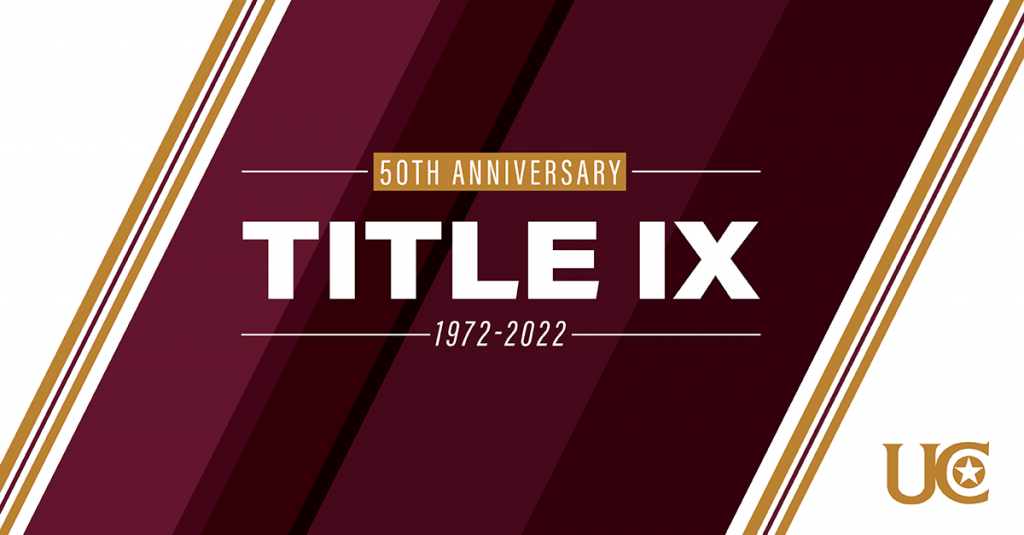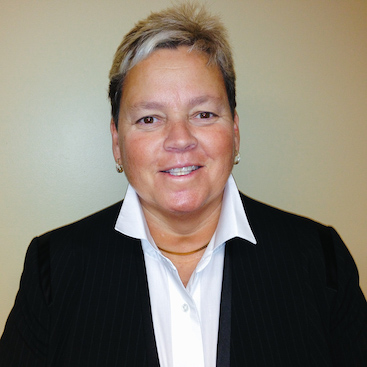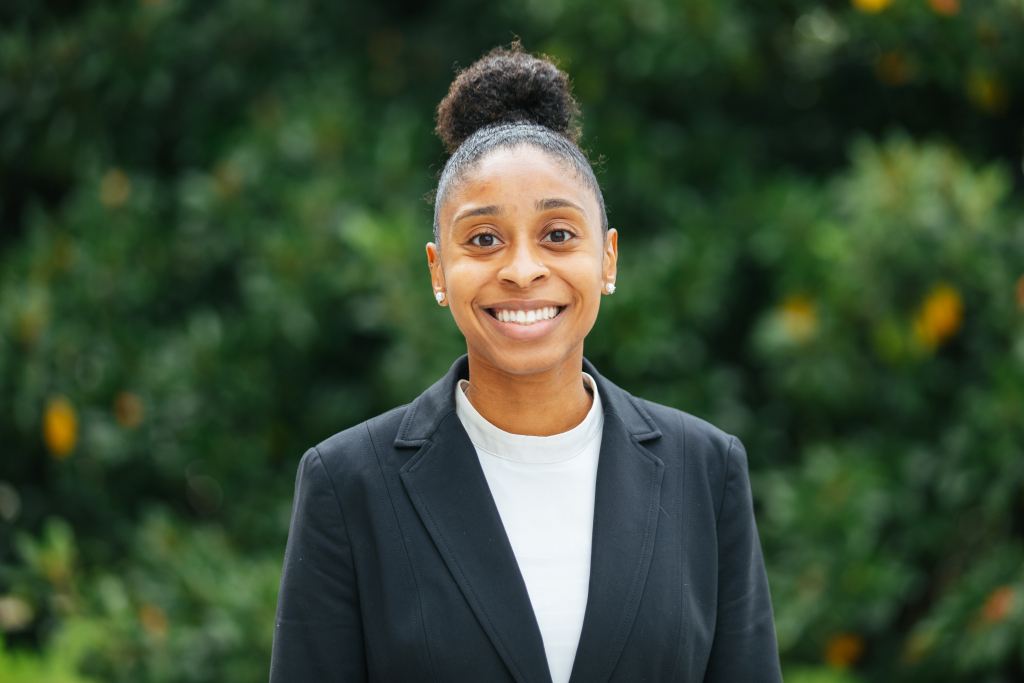50 years of Title IX

Fifty years ago, then-President Richard Nixon signed the Education Amendments of 1972, which included Title IX, a federal law prohibiting sex-based discrimination in schools or educational programs that receive funds from the federal government.
While also known for its role in advancing women’s sports, Title IX plays a vital part in protecting students from harassment and discrimination based on gender, gender identity, and sexual orientation, while providing support and guidance to the campus.
Here are some reflections from members of the UC Community about how Title IX has positively impacted their lives:
I knew I wanted athletics to be a part of my college experience. Playing sports in life is so much more than just winning and losing. Participating in competitive youth athletics, in college, and after, has enabled me to develop many essential life skills such as teamwork, patience, discipline, leadership, time management, learning from failures, and so much more. And there are the health aspects such as regular exercise and good eating habits that have increased my overall happiness level. All athletes experience these same benefits.
If we go back 50 years to 1972, women didn’t have as much opportunity to compete in sports. In fact, in 1972, 170,000 men competed in NCAA sports while just 30,000 women competed. That put women at a serious disadvantage in so many ways. Today, those numbers have jumped dramatically to over 150,000 women now competing in NCAA sports. More young women are competing in youth and high school athletics as well. As a result, the number of women who dropped out of high school has significantly decreased and now there are more women than ever pursuing higher education and completing college.
I was especially fortunate to be at a small Division III school where I could compete in multiple sports. Doing so really broadened the network of friends I developed. We had many great shared experiences together! Competing in sports has done so much for me…the friendships, all of the skills I have learned on the field or court, the mental and physical healthiness I have been blessed with, and the best of all – I met my husband on the basketball court!
-Lynn Roth
As a woman who has worked in higher education for more than 20 years and has served as a Title IX Coordinator for more than eight years, it is exciting to celebrate the 50th anniversary of Title IX and what those 37 words mean. The Title IX of the Education Amendments of 1972 has paved the way for a safer, more inclusive campus environment that is free of sex and gender-based discrimination. This amendment has taught us that glass ceilings cannot be broken unless we have the tools to do so. Several courageous women have paved the way for all persons to be given equal opportunities in an educational setting.
At the University of Charleston, I want all students, faculty, and staff to know that they are protected and will be given equal opportunities at our university. I pride myself on the job that myself, our Title IX team, and our Leadership team do to make sure everyone on our campus is treated with respect and given all of the opportunities afforded to them.

It’s only 37 words.
Many individuals may not realize that the Title IX Educational Amendments Act contains only 37 words, but yet has been life-changing for so many women. I am not sure that I would be sitting in the AD Chair for the University of Charleston if not for this unique and exceptional legislation.
Congress enacted Title IX of the Education Amendments Act, which President Richard Nixon signed into law on June 23, 1972. This landmark legislation states: “No person in the United States shall, on the basis of sex, be excluded from participation in, be denied the benefits of, or be subjected to discrimination under any education program or activity receiving Federal financial assistance.”
Throughout the years as a former collegiate coach, professor, and now as someone currently working as an athletics administrator, I have been guided by two core values, courage, and fairness. You may have even heard me speak about my desire to play ice hockey on my high school team with my two older brothers, only to learn from the coach that girls were not allowed to participate on boys’ teams. It did not matter that my high school didn’t have an ice hockey program for females, it was shared that no matter how talented I was, this was not going to be an opportunity that I would realize as a high school athlete. During that time, Title IX legislation was in place, but very few schools were adhering to this new policy. In the end, I went on to play volleyball, basketball, and softball for my high school, but it was not lost on me that ice hockey has always been my favorite sport and that having the chance to play with my brothers was simply unattainable. To this day, I wish things could have been different.
I went on to play four different sports for the University of Charleston and was eventually inducted into the Hall of Fame in 2006. In college, I saw many of the same inequities still in place as it related to facilities, practice times, scholarships, coaching salaries, and equipment. Throughout the years as a collegiate coach, professor, and administrator I have continually advocated for members of the underrepresented sex to receive equitable treatment as it relates to the many benefits afforded to today’s athletes. On January 23, 2012, I was named the Director of Athletics for the University of Charleston and was only the second female to hold this title. I immediately began to work with other individuals on campus to make changes to ensure that our male and female athletes had similar and equitable experiences during their time with us. Those 37 words continue to guide me every day as a leader in athletics and as a member of our President’s Cabinet. We have added sports for the underrepresented sex, enhanced roster opportunities, and augmented professional development sessions and chances to network all while increasing athletics aid.
In summary, I have enjoyed working as a facilitator of the NCAA’s mentoring program for women and minorities over the past ten years. The goal as a facilitator is fairly simple, and that is to get more females and individuals of color in the AD seat. Having the courage to speak up for what is fair usually comes quite easy for me. After all, we have had 50 years to get Title IX right, and from my perspective, every parent should want their daughters to have the same educational opportunities as their sons. Although throughout the years there have been countless attempts to change this historic piece of legislation, I am pleased to see that all of us now have the chance to celebrate the many positive changes that are in place today because of those extraordinary 37 words.

Opportunity. Equality. Justice. Respect. Rights. Protection. Change. Power. Honor. Legacy. These are some of the many words that come to mind when I think about Title IX of the Education Amendments of 1972 (Title IX). Title IX is often referenced when the disparities of women and men in relationship to athletics are being examined and discussed, but it is so much more than that. Title IX protects victims of sexual harassment, provides equal opportunity, prohibits sex (including sexual orientation and gender identity) discrimination, and so much more. When I think about the affects Title IX has had on my life as an athlete and a coach, I reverence the people who fought for this regulation, and I am grateful for all they had to endure to get us to this point.
To quote the famous James Brown lyrics, “this is a man’s world”. Prior to Title IX, opportunities for women in sports were very slim and even after Title IX was passed, the resources in which women were supplied with do not pale in comparison to that of which men received. For example, Pat Summitt, who would become one of the greatest basketball coaches of all time (men or women), was paid $250 a month and at one point money was so tight that one night, she and her players slept in sleeping bags on the other team’s gym floor. Fortunately, this is not an experience I or any team that I’ve been a part of has ever had to endure and it is because of the work Pat Summitt, Billie Jean King, and many other pioneers like them put in. Title IX has opened the door for women to participate and excel in whatever it is they desire to do. It’s because of Title IX former WNBA star, Becky Hammon was able to coach in the NBA. Because of Title IX, I was able to play basketball on an athletic scholarship and can now coach and mentor other young women like me.
The opportunity I’ve been afforded has birthed in me the desire to honor the legacy the women before me have left behind. I want to empower other young women to continue to move the needle forward. We honor Title IX and the people that fought for it, by continuing to demand change, equal opportunity, equal pay, equal resources, etc. We honor it by respecting and protecting the rights and lives of the marginalized. We honor Title IX and everyone who fought it, by remembering the past, being grateful for the present progress, and continuing to build for the future. As James Brown said, “this is a man’s world, but it wouldn’t be nothing, nothing without a woman or a girl.”
Reflecting on fifty years of Title IX, it is clear that this landmark legislation has profoundly transformed educational and athletic opportunities for women and has been instrumental in fostering a more inclusive and equitable environment in schools and colleges across the United States.
The reflections from members of the UC community highlight the enduring significance of Title IX in their lives, showcasing personal stories of empowerment, equality, and opportunity. As we celebrate this milestone, we honor the progress made and acknowledge the continued need to uphold the principles of Title IX, ensuring that future generations benefit from its protections and opportunities. The University of Charleston remains committed to fostering an environment where all individuals can thrive, underscoring the vital role of Title IX in creating a just and inclusive educational landscape.
